I want to ask if how can I achieve importing CSV file to my Excel file matching the columns of my template using macro (or VBA).
Here's why I'm frustrated to ask this question. I searched for answer. Google didn't help. No one is asking for this type of question.
I have a file name "UserInfo.xlsx" which has a column headers:
- UserID
- Username
- Name
- ContactNumber
- EmailAddress
- LastLogin
Now I have a CSV file (generated by our website) with some excess headers which I don't need.
The headers from my CSV file and headers from my template are exactly the same. The problem is I want to get those information based on their column headers (CSV) that will match the template's header.
How can I achieve this? I will use this template everyday because new users are signing up to our website. So I need a VBA code for this.
I don't know where to start so I'm asking for your help.
Thank.
